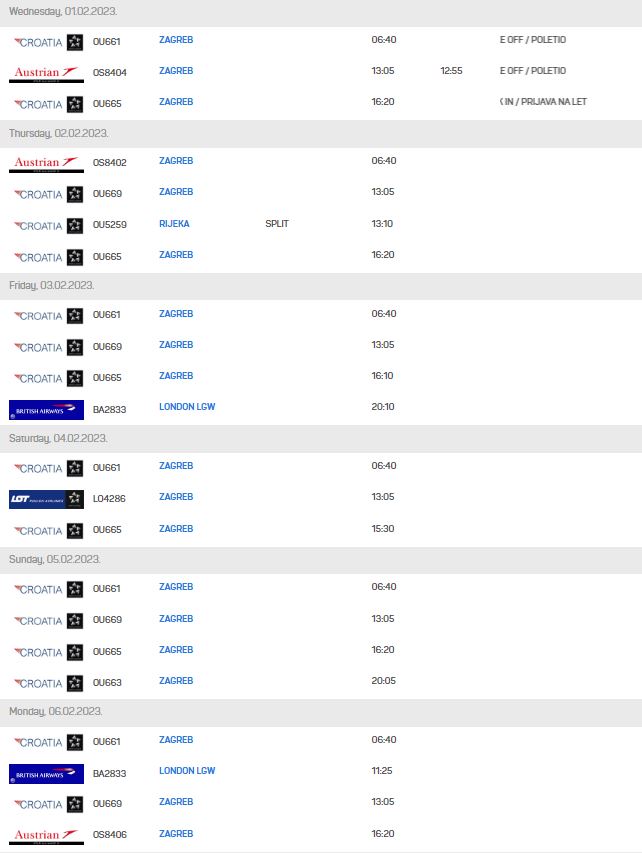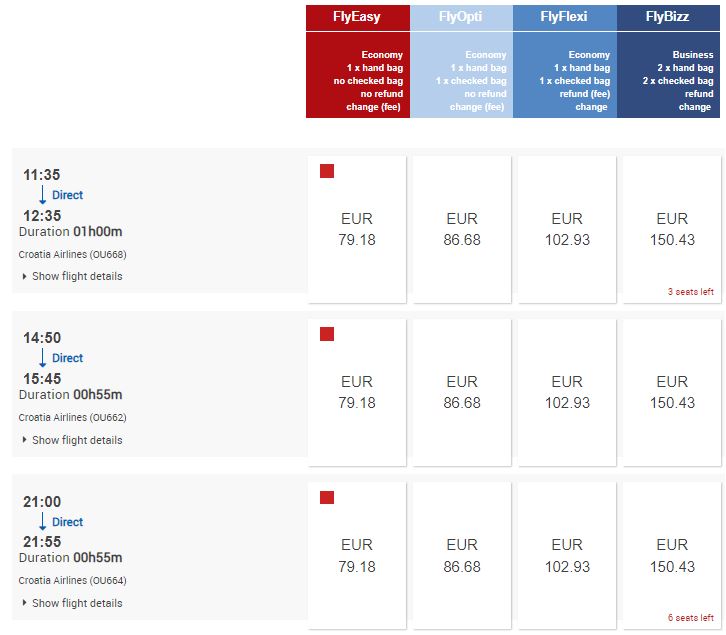Solving Dubrovnik Winter Connectivity: Flights to Belgrade
February 1, 2023 - Why year-round flights to Belgrade could solve Dubrovnik's huge connectivity problem.
The most important event in the Dubrovnik calendar takes part this year, and - don't tell anyone - this is the very best time of year to visit the Pearl of the Adriatic. The Feast of St Blaise, the much-beloved patron saint of Dubrovnik, is an extraordinary event when the UNESCO World Heritage Site, stripped back to its bare stone with most cafes and restaurants closed, comes to life and is packed once more. But not with tourists, but with locals, emerging from the winter hibernation to celebrate this most important of days. If you have never been, I rate it as one of the top 10 experiences of my 20 years in Croatia - you can read more in Dubrovnik Full of Life as St Blaise Celebrated in Style.
Want to come and enjoy the festivities, or chill in Dubrovnik in the off-season? Good luck, unless you live in Zagreb.
After a week working in Montenegro last week, I got to see the realities of tourism and connectivity in January.
It was a little sobering when I saw the Dubrovnik timetable, a European tourism champion and iconic city which could - and should - be a 12-month destination.
Above is the timetable for the next few days, including those magical St. Blaise festivities. Apart from one flight to London, Zagreb is petty much the only choice.
And even those flights to Zagreb are crazy expensive - despite the fact that they are subsidised with the PSO (Public Service Obligation) scheme.
Here are your one-way options from Dubrovnik to Zagreb a week from now, for example.
I have spent the last week on Lustica, the lovely and almost totally unspoiled peninsula south of Tivat in Montenegro. I flew in and out of Dubrovnik, and I was struck by how poorly serviced Dubrovnik is in the winter, and how the rise of Tivat from nothing has made it arguably a more interesting destination in winter - certainly livelier - than the Pearl of the Adriatic itself. Here is what I wrote:
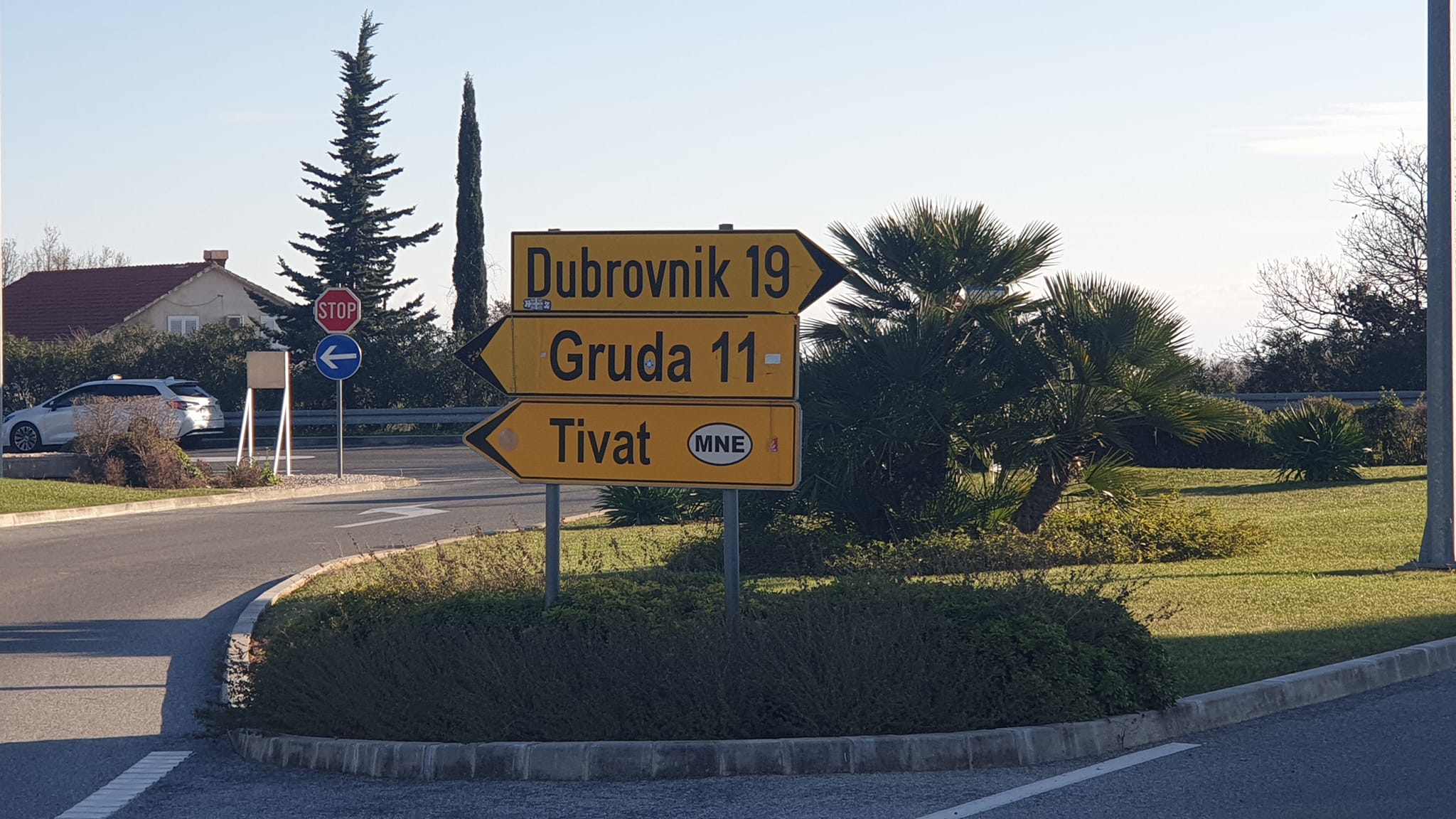
Croatian tourism tragedies in road signs and airport departures. 25 years ago, Tivat was a coastal backwater on the Montenegrin coast. Today, even though it is 3 times smaller than a nearer town to Dubrovnik (Herceg Novi), it has its very own sign as you leave Dubrovnik Airport. Porto Montenegro was supposed to have been built in Croatia, but someone got greedy and Tivat became its home. Today, there are 3 luxury resorts with investment totalling 2.5 billion euro in the Boka region of Montenegro, with many other large developments. By contrast, the largest hotel investment on the Croatian coast in today's money is Haludovo on Krk, a joint venture between Tito and Penthouse in 1971 (and now a ruin for over 30 years) at a paltry 250 million. Not only is the luxury tourism going across the southern border, but so are the locals for entertainment in winter. And flights. Tivat Airport connects to the world 12 months a year, while Dubrovnik is serviced by almost exclusively domestic routes this winter (see timetable in photo). On the positive side in the Kingdom of Accidental Tourism, the sun is shining, and soon the tourists will just come.

And the prices aren't bad compared to those singles with Croatia Airlines (flights February 8-13 - a return not single):
I asked legendary tourism consultant, Mario Seric, for his opinion. The first sentence shows the benefits of being connected to Belgrade, as well as Zagreb, whose connectivity pales by comparison.
Air Serbia will be offering direct flights to 93 cities /destinations worldwide, of which 62 are direct, scheduled, and year-round, 16 direct scheduled seasonal, and 15 direct charter seasonal!
This is impressive compared to the poor connections being offered by Croatia Airlines from Zagreb with direct flights to only 21 destinations (16 year-round and 5 seasonal).
So these connections with Belgrade can also be great to access other destinations as well, especially those that are far away because Belgrade has direct flights to New York, and as of this year also to Chicago and Tianjin...
Air Serbia is currently also considering the introduction of direct flights to Toronto, Miami, Bangkok, and Beijing.
And the good thing in this is that all these flights can be operated by smaller airlines that do not consume a lot of fuel. Turboprop airlines are perfect for intraregional connectivity, and you have a lot of great examples in Europe for this.
Thanks, Mario. And to connect all that network to one of Europe's top destinations, so that tourists could enjoy it out of season, as well as allowing locals to travel with ease, would it really be so hard to connect Belgrade to Dubrovnik 12 months a year? After all, if it is clearly working for tiny Tivat next door, surely it would work for a tourism giant like Dubrovnik. Worth the small investment to try?
Of course, I can understand that there might be some objections in certain quarters given recent history of the connection between Belgrade and Dubrovnik, but the Croatian tourism chiefs decided to move on from the recent past in 2011 by being the main tourism sponsor at the regionally significant Belgrade Tourism Fair back in 2011.
Dubrovnik to the world, 12 months a year. It could - and should - be closer and more realisable than one might think.
****
What is it like to live in Croatia? An expat for 20 years, you can follow my series, 20 Ways Croatia Changed Me in 20 Years, starting at the beginning - Business and Dalmatia.
Follow Paul Bradbury on LinkedIn.
Subscribe to the Paul Bradbury Croatia & Balkan Expert YouTube channel.
Croatia, a Survival Kit for Foreigners is now available on Amazon in paperback and on Kindle.

Matej Periš Farewell Held Today at Church of St. Anthony in Belgrade
May 20, 2022 - The body of Matej Periš was taken to the Church of St. Anthony in Belgrade at around 2 pm on Friday, where a mass was held, followed by a farewell to his native Split, where he will be buried. ''It's over, I'm going home with my son'', said his father Nenad.
A large number of citizens from Belgrade gathered in front of the church to pay their respects to the man from Split who, under as yet undetermined circumstances, died in the Serbian capital, reports tportal.hr.
According to the preliminary results of the autopsy, Periš drowned in the Sava on a fateful night, and his body was found only on Wednesday, almost five months later, in the Danube near Ada Huja.
Nenad Periš, the father of Matej Periš, was the first to arrive at the church.The Holy Eucharistic Mass at today's farewell from Belgrade in the church of St. Anthony of Padua was led by the Archbishop of Belgrade Stanislav Hocevar, and in a farewell speech, he was joined by the head of the Serbian Orthodox Church (SOC) Patriarch Porphyry.
On behalf of the Diocese, a bouquet of 27 white roses was placed on the coffin, symbolizing the years of Matej Periš.
''All of us will, sooner or later, follow the path that Matej took from this world, but that path is not determined by us, this path is God's will'', said the head of the Serbian Orthodox Church.
"I thank Belgrade for its great heart, regardless of the fact that my son's life ended there. The heart given to me by the people of Belgrade in these 139 days helped me to feel the human care that I needed in these moments'', said Nenad Periš.
He also thanked the Ministry of the Interior of Serbia, emphasizing that he had ''human and professional contact'' with the police officers.
''I would like to say thank you to every cop. I would also like to thank the Croatian Ministry of the Interior, which has also done an amazing job. Thanks also to the BiH Ministry of the Interior. Thanks to all the journalists, and cameramen. I think you have shown that you are human and that in such difficult situations you know the difference between news and pain'', he continued.
''Thank you to every man in Belgrade, regardless of whether he is a believer or not. It has come to an end, I am going home with my son, and I am turning a new page that will be printed in Belgrade. After this, I think I will be a much better man. I think that God's call has a deeper meaning ', said Periš.
He pointed out that no public farewell from Matej would be organized in Split, and that the funeral would be held among family and friends.
For more, check out our lifestyle section.
Rijeka-Belgrade Flight to Connect Krk with Several International Destinations
January 21, 2022 - The return of the Rijeka-Belgrade flight is already great news, but also because it allows travelers to connect to numerous destinations around the world.
After the announced return of Ryanair and Condor, another very important airline that operated to Rijeka in the pre-pandemic period - Air Serbia - is returning to Rijeka Airport, reports Novi List.
After cutting the direct line to Belgrade in 2020 after the pandemic, Air Serbia returns to Krk with the Rijeka-Belgrade direct flight. The first flight is expected on June 15, and flights will run until September 17, twice a week, on Wednesdays and Saturdays.
Tickets went on sale in the middle of the week, and the price of a one-way ticket is currently only 374 kuna, while the return ticket is 676 kuna. The flight lasts an hour and 20 minutes, and ATR72 aircraft will operate on this route.
Air Serbia launched flights to Rijeka in June 2019. The last flights ran in December of that year, after which they were suspended until further notice due to the coronavirus pandemic. In that year, the direct line between Rijeka and Belgrade was established after thirty years, with the proviso being year-round, so even in winter, it was possible to fly to Belgrade. After the line was canceled due to the pandemic, there was talk that it would be permanently abolished, but, fortunately, those announcements proved wrong.
"Air Serbia offers good connections from Rijeka, via Belgrade, to Amsterdam, Vienna, Zurich, Dusseldorf, Milan, New York, Oslo, Paris, Podgorica, Rome, Stockholm, and Tivat, as well as to Rijeka, via Belgrade, from Amsterdam, Berlin, Vienna, Brussels, Zurich, Frankfurt, Milan, Podgorica, Rome, Stuttgart, and Tivat," according to the Serbian national airline.
"We are happy to significantly improve and diversify our network by carefully selecting new destinations, following the wishes of passengers and strategic plans for future expansion," said Boško Rupić, sales manager at Air Serbia.
Commenting on the introduction of the new line, Irena Peršić Živadinov, director of the Kvarner Tourist Board, reminded of the importance of this market for the region and pointed out that the significance of this line is that the Serbian partner has several connecting flights.
"It is an important market for us anyway. Guests from Serbia traditionally love Kvarner and are excellent consumers. They spend when they visit, considering that the upper class visits us. Moreover, they often come for extended weekends, so in that sense, the air connection from Belgrade to Rijeka will undoubtedly make their arrival easier. Another key feature of this line is that it has a lot of connecting flights, either with Europe or with further destinations such as New York or Moscow.
Therefore, this line is important to us not only for connecting with the Serbian market but also for easier access from several other markets. So we had the Belgrade-Rijeka flight set on the days of the week when the connecting flights were in Belgrade.
We have many additional airline connections with several countries," said Peršić Živadinov, adding that partners in Air Serbia are optimistic about the new route, especially since, for example, the route from Belgrade to Pula last year proved extremely popular.
Serbian tourists were loyal to Kvarner during the pandemic. According to the Kvarner Tourist Board, there were even more overnights by Serbian tourists in Kvarner in commercial accommodation last year than in the pre-pandemic 2019. Specifically, in 2019, about 21,000 guests from Serbia arrived in Kvarner, who spent about 111,000 nights, while last year, about 20,000 Serbian tourists arrived, who spent about 114,000 nights. If those in non-commercial accommodation, i.e., in cottages, are taken into account, overnight stays are doubled. In 2019, 206 thousand overnight stays were realized in commercial and non-commercial accommodation, and last year 190 thousand overnight stays.
For more on flights to Croatia and other travel announcements, make sure to check out our dedicated travel section.
NGOs Hold Commemoration of Vukovar Victims in Belgrade
ZAGREB, 18 Nov 2021 - The Women in Black association organized a commemoration of Vukovar victims in the center of Belgrade on Thursday, standing in silence with the banner "We'll never forget the war crimes in Vukovar".
Representatives of the Civic Democratic Forum (GDF) joined the Women in Black, and the rally was secured by police, which is seldom when it comes to the association's demonstrations, commemorations, or peace actions.
In addition to remembering the victims of Vukovar, members of the Women in Black pointed out the existence of camps for Croats, who were brought to the territory of Serbia, to Sremska Mitrovica, Stajićevo near Zrenjanin and Begejci in Žitište since the beginning of the conflict, asking for memorial plaques to be placed in those places.
"Serbia and its institutions should grant the request the Women in Black and the Art Klinika association have been making for 15 years, with the support of more than 30 civil society organizations, that a memorial plaque be placed at the location of camps in Stajićevo, Begejci and elsewhere," said members of the Women in Black, seeking support for other forms of symbolic compensation to victims and their families, as well.
According to the Women in Black, Serbia and state institutions should establish the responsibility of the top of the former Yugoslav People's Army for the armed attack on Croatia and initiate court proceedings for the crime of urbicide in Vukovar.
GDF: Serbia doesn't have the strength to face the past
The Civic Democratic Forum said on the occasion of the anniversary of the fall of Vukovar that not only Vukovar but the entire Yugoslavia had fallen on 18 November 1991.
GDF leader Zoran Vuletić told Hina that "Vukovar is indelible proof of the criminal policy which united the Yugoslav People's Army and bloodthirsty paramilitary groups with its manipulation about the defense of Yugoslavia and incitement of revanchism and nationalism".
"And what must not be forgotten in this shameful chronology of evil, the destroyers set out from Serbia for Vukovar, as the executors of the policy of Slobodan Milošević and like-minded people. The vengeful rampage of the destroyers lasted for months until the city stopped looking like itself, and thousands of people were killed, wounded, or forced to leave, not knowing where to go," the GDF said.
Even today, Serbia does not have the will, strength, or desire to face this memory, Vuletić said.
With occasional heckling and verbal provocations by some passers-by, today's commemoration in the center of Belgrade passed without incidents.
For the latest news about Croatia, click here.
President: Croatia Flag Removal From Ambassadorial Residence Could Not Happen in Zagreb
April 24, 2021 - Commenting on an incident in Belgrade where the Croatian flag was removed from the residence of the Croatian ambassador, President Zoran Milanović said on Friday that such a thing, Croatia flag removal, could not happen in Zagreb.
"I thought an ambassador's residence was a protected building, and this is the case in Croatia. So I think that it (what happened in Belgrade) could not happen here. Croatia's law enforcement authorities would prevent it," Milanović said in response to questions from the press after he attended a special session of the town council in Križevci on the occasion of the town's day.
Croatian Ambassador Hido Biščević said on Thursday it was no accident that the Croatian flag was taken down from his residence in the Serbian capital city and that the incident reflected "part of the atmosphere" in Serbia's society, which he said continued to feed on hate speech.
Milanović said that Biščević was an experienced diplomat and "I hope that he knows what he is doing."
The president went on to say that Croatia and Serbia have several outstanding issues, and Croatia is generally ready to shelve all of them except the issue of people who went missing in the 1991-1995 war.
Milanović also accused Prime Minister Andrej Plenković and his cabinet of a stalemate in the process of the appointment of new Croatian ambassadors.
He said that it was Plenković who turned down the model of a 50/50 quota whereby half of the nominees for diplomatic missions are proposed by the head of state and a half by the government and added that such a model had been applied in the past during the presidential term of Stipe Mesić and the governments led by Ivo Sanader and Jadranka Kosor.
He complained about a lack of communication with the premier and added that this adversely affected the state affairs.
Milanović also criticized the government for disbursing extremely small outlays for the Croat ethnic minority in Serbia, which is why local Croats depend on Serbian President "Aleksandar Vučić and (Serbian) Radicals."
For more about politics in Croatia, follow TCN's dedicated page.
Foreign Minister Gordan Grlić Radman Slams Removal of Croatian Flag From Ambassador's Residence in Belgrade
ZAGREB, 23 April, 2021 - Croatian Foreign Minister Gordan Grlić Radman on Friday condemned the removal of the Croatian flag from the ambassador's official residence in Belgrade, saying that such incidents fomented an atmosphere of hate, hostility and intolerance.
"Such incidents are certainly not conducive to understanding (...) We hope and wish for the relations between Croatia and Serbia to be good because it makes sense that we should have stable relations," he told the press.
Croatian Ambassador Hido Biščević told N1 television on Thursday it was no accident that the Croatian flag was taken down from his residence and that the incident reflected "part of the atmosphere" in Serbian society, which he said continued to feed on hate speech.
Unknown persons removed the flag from the building which has video surveillance but no guards most likely on Wednesday morning, he said.
The Serbian Foreign Ministry said this was an "injudicious and isolated act," hoping that it "won't cast a shadow on efforts to set Serbia-Croatia relations on new foundations so that in future they can develop in the spirit of mutual trust and cooperation."
Grlić Radman said that because of such incidents "we can't say the relations have good prospects, we can't talk about a good future, but we must believe in a good future."
He announced that he will go to Subotica on 28 April for the laying of the cornerstone of a new Croatia House. His talks with local officials will also address an initiative, opposed by Croatian linguists, to declare the Bunjevci dialect an official language in that town in northern Serbia.
The minister reiterated that the initiative was contrary to the Croatia-Serbia agreement on the protection of national minorities.
He said that on 27 April the prime minister of the Vojvodina province, Igor Mirović, would visit Petrinja, struck by a devastating earthquake last December.
Serbia's EU path "goes also across Croatia"
The minister went on to say that Serbia's EU path "goes also across Croatia." Before Serbia joins, it is necessary to resolve the issue of the war missing, universal jurisdiction, and reparations for POWs, he said.
Serb representatives have three guaranteed seats in the Croatian parliament and Croatia wants Croats in Serbia to be represented as well, he added.
Serbia "must actively and strongly deal" with reforms, the fight against corruption, and the rule of law, he said.
Serbia was granted EU candidate status in March 2012 and began accession negotiations in January 2014.
Ambassadorial appointments
Although Prime Minister Andrej Plenković and President Zoran Milanović have not yet agreed on the appointment of new ambassadors and consuls, Grlić Radman said he did not think the process was blocked and that there was "only one Croatian diplomacy."
He dismissed the possibility of a quota or a 50:50 model (between the president's and government's proposals). He said "agreement must be reached" and that one could talk about the list of candidates the government had sent the president, but that the government was not in favour of quotas.
He said the candidates were "professional diplomats who have proved themselves on the job."
Milanović, on the other hand, wants it to be known who is behind which ambassador for responsibility's sake, saying that this has been the practice before.
For more about politics in Croatia, follow TCN's dedicated page.
Arena Hospitality Group Purchases Hotel in Wider Centre of Belgrade
December the 31st, 2020 - the Croatian tourist company which is known for its numerous business ventures at home and abroad, the Arena Hospitality Group, has purchased yet another hotel in a foreign country, this time in the Serbian capital.
As Poslovni Dnevnik writes, the large Croatian company, the Arena Hospitality Group announced recently that through its local branch located over in Serbia, it concluded the takeover of the 88 Rooms hotel in the wider centre of the Serbian capital of Belgrade. The value of the transaction stands at an enormous 45 million kuna in total.
The modern hotel is located a mere few minutes away from Belgrade's historic city centre, as its name suggests, it offers 88 rooms and suites, a restaurant, bar and conference room, as well as a well-equipped gym.
The acquisition of 88 Rooms is another milestone in the Arena Hospitality Group's strategy to expand its operations across the Central and Eastern European region. This acquisition also further enables the Arena Hospitality Group to increase the volume of the business it engages in in cities across Europe with the aim of increasing its presence in the higher category market segment in the region of Central and Eastern Europe, while striving to create added value for shareholders, Seebiz reports.
The Arena Hospitality Group's projects, in both the short and medium term, include repositioning the Brioni Hotel in the beautiful Istrian city of Pula into a luxury hotel boasting 227 rooms, with the ambition for it to become the best hotel in that category in all of Pula and its surroundings, the repositioning of Camp Stoja in Pula into a higher category camp, the conversion of a building location in the heart of Zagreb into a hotel with 113 rooms, which will include a famous restaurant and bar, wellness and spa facilities, a fitness centre, a meeting space and more, and the renovation of the Riviera Hotel in the very heart of Pula.
For the latest travel info, bookmark our main travel info article, which is updated daily.
Read the Croatian Travel Update in your language - now available in 24 languages
Croatia Pan Europe Trains Will Run 160 Kilometres Per Hour By 2030
November 2, 2020 – From southern Spain to Budapest through Rijeka and Zagreb and from Salzburg through Zagreb, Belgrade and Skopje to Greece, Croatia pan Europe trains will run 160 kilometres per hour by 2030
In the biggest investment ever made in the infrastructure of the country's rail network, Croatia pan Europe trains will run 160 kilometres Per Hour By 2030. In an investment costing 4.5 billion Euros, 750 kilometres of railways will be modernised.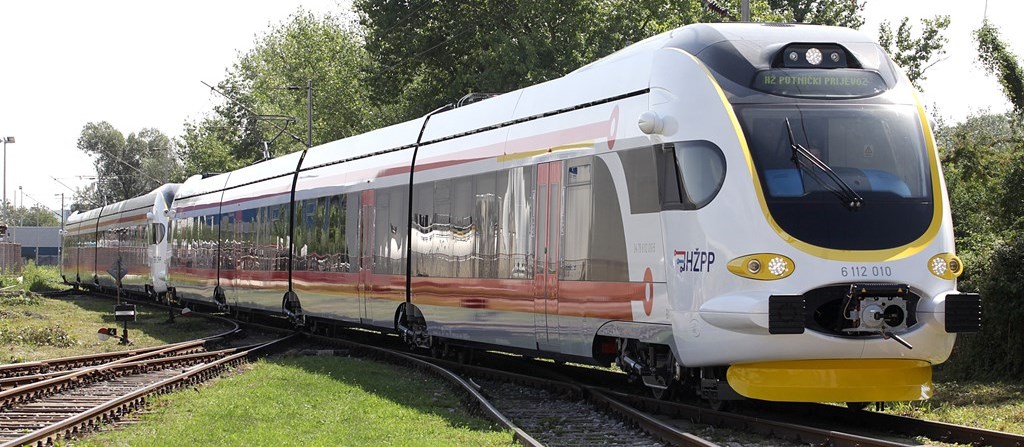 © HZPP
© HZPP
The lines that will receive the upgrade will connect Rijeka to Budapest in Hungary via Zagreb (RH2) and Zagreb to Belgrade via Vinkovci (RH1). Though these lines already exist, they have never undergone an overhaul of the scale proposed. The modernisation with ensure double lanes across the whole of both routes and facilitate passenger train speeds of 160 kilometres per hour.
The level of investment means that during the next ten years, HŽ Infrastruktura's (Croatian Railway Infrastructure Company) rebuild of the Croatia pan Europe trains network will be the largest infrastructure project in the Republic of Croatia and the largest beneficiary of EU grants in the transport sector. Most of the money for the modernisation is coming from European Union grants. Almeria on the Mediterranean, in Andalusia, southern Spain, where the Mediterranean Corridor begins © ddz photo
Almeria on the Mediterranean, in Andalusia, southern Spain, where the Mediterranean Corridor begins © ddz photo
The RH2 line is part of the Mediterranean Corridor which connects the south of the Iberian peninsula with eastern Hungary via six countries. The line runs from Almeria on the Mediterranean coast in the south-east of Spain, through Madrid and Barcelona. It passes through Marseille in France, then northern Italy, Slovenia, Croatia, the Hungarian capital of Budapest, before finishing in Záhony in the east of Hungary, not far from the border with Ukraine. The route covers more than 6000 kilometres. The Croatian section will pass through Jurdani (six kilometres north of Opatija), Rijeka, Karlovac, Zagreb, Dugo Selo, Križevci and Koprivnica.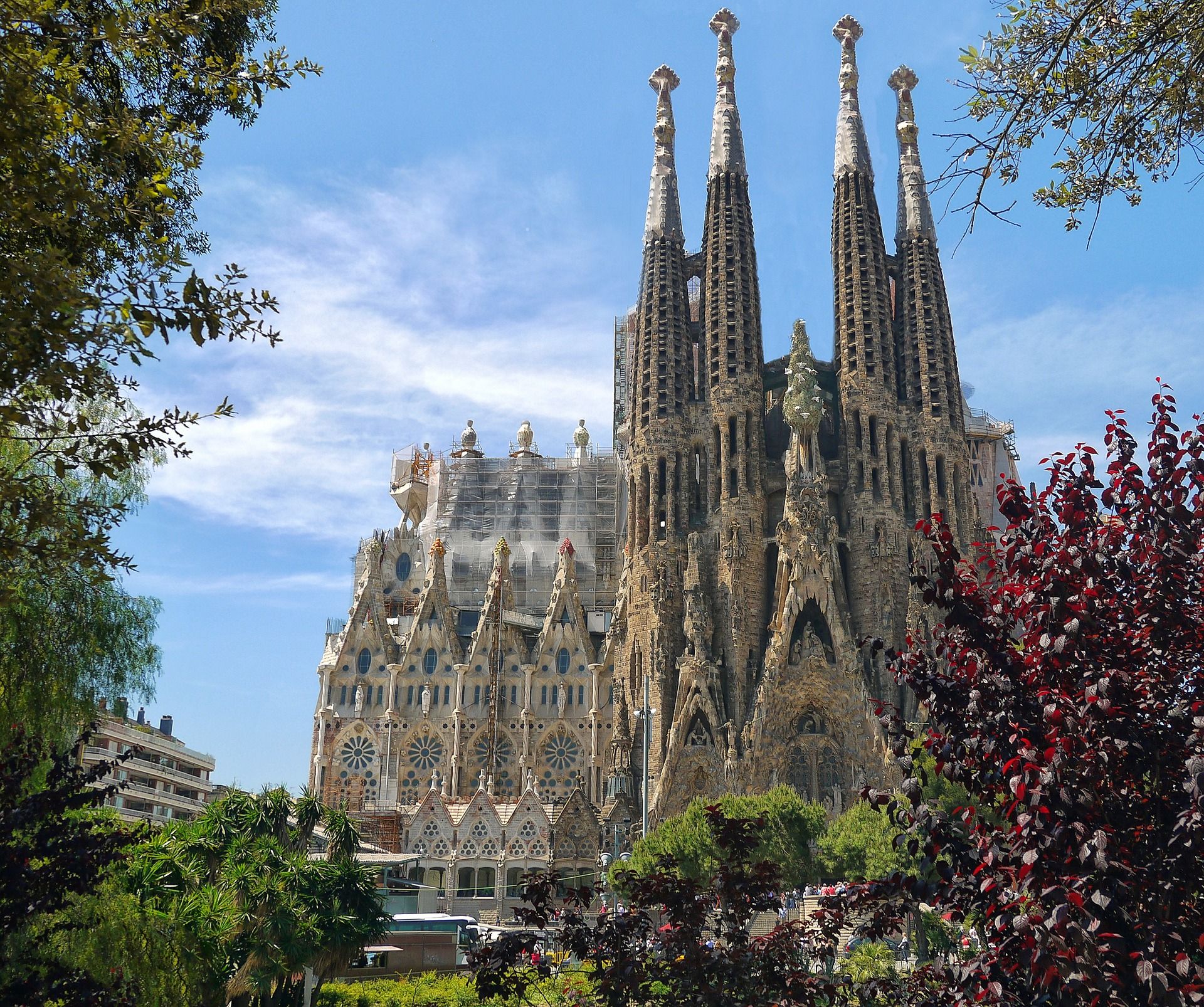 To Croatian rail passengers, the Spanish city of Barcelona will be just a few hours away by 2030 © Patrice Audet
To Croatian rail passengers, the Spanish city of Barcelona will be just a few hours away by 2030 © Patrice Audet
The RH1 line is part of the Pan-European Corridor X. The Croatia pan Europe trains section of this transport route was once one of the three lines taken by the Orient Express. The modernised rail line will start in Salzburg, Austria and pass through Ljubljana before reaching Zagreb. The line will pass through Slavonski Brod and Vinkovci before making its way to Belgrade, then Niš in southern Serbia. The old Oriental Express line then headed east, to Istanbul via Sofia, Bulgaria. The EU-funded train section of the Pan-European Corridor X instead heads south, to Thessaloniki in Greece via Skopje in Macedonia.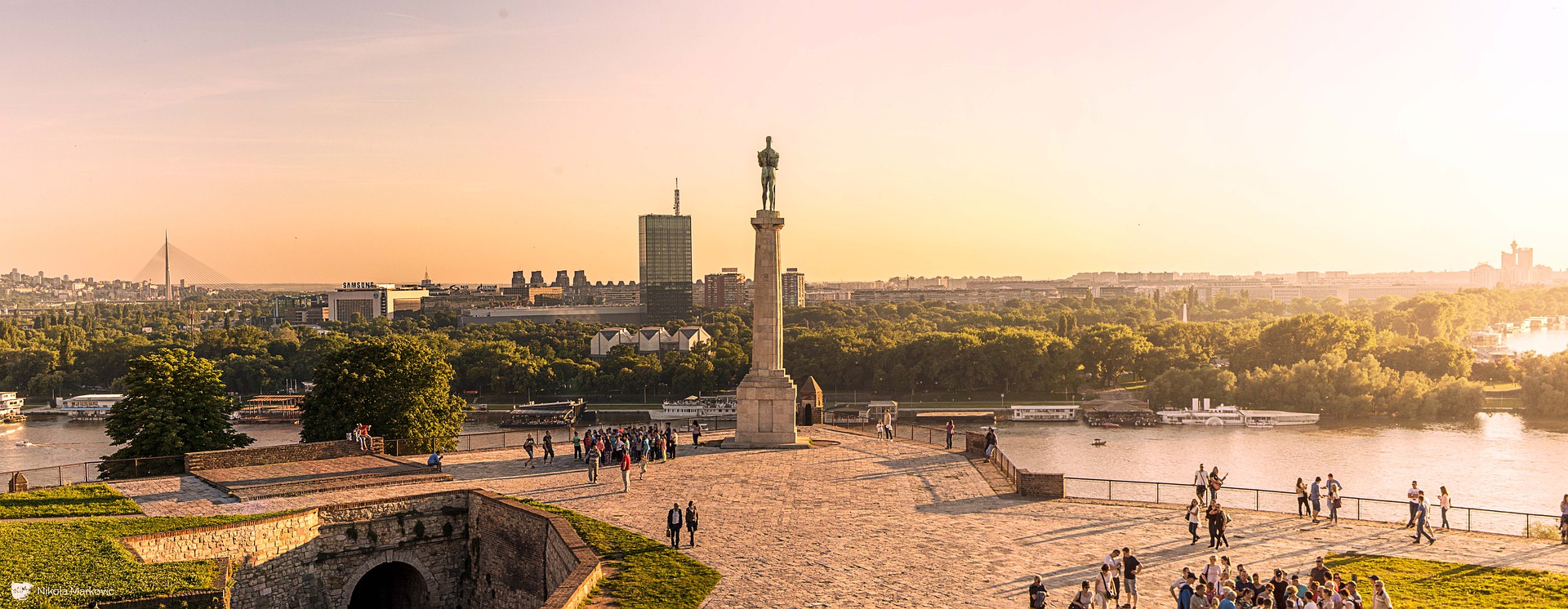 The rail journey time between Zagreb and Belgrade (pictured) will be shortened considerably by the improvements © Djordje Jovanovic
The rail journey time between Zagreb and Belgrade (pictured) will be shortened considerably by the improvements © Djordje Jovanovic
Trains are currently the greenest transport option for long-distance travel. As the world heads in the direction of seeking energy sources that do not rely on finite fossil fuels, rail also currently looks to be the long-distance travel option best-equipped to meet this challenge. In the future, visitors from all across Europe may increasingly rely on the Croatia pan European trains network in order to access the country. The improvements also increase business and leisure opportunities for Croatians in Europe.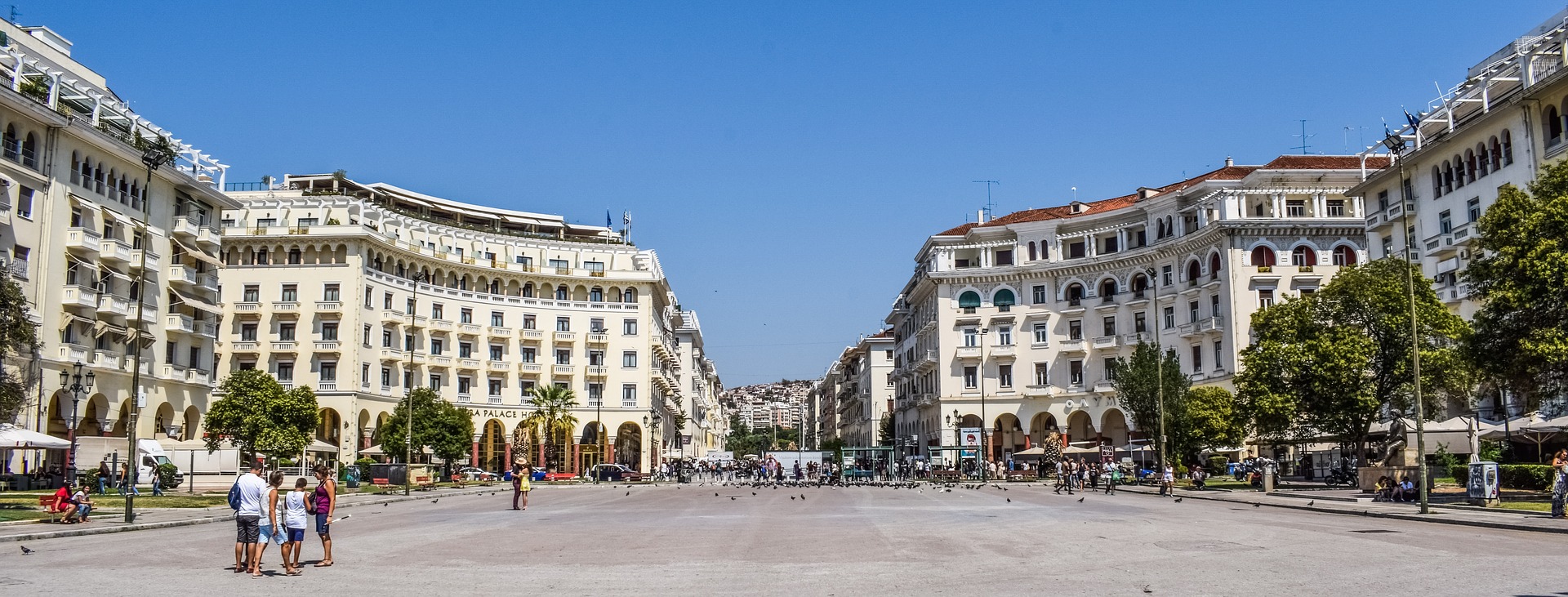 Thessaloniki in Greece is one of the most popular cities in Europe for visitors. The renewed rail section of the Pan European Corridor X will end here © Dimitris Vetsikas
Thessaloniki in Greece is one of the most popular cities in Europe for visitors. The renewed rail section of the Pan European Corridor X will end here © Dimitris Vetsikas
Around 935 million Euros was invested in the Croatian railway infrastructure between 2010 and 2019. The new investment dwarfs those figures. The initial investment, occurring between 2020 and 2024 amounts to as much as 1.8 billion Euros, of which almost 78.7 per cent is co-financed by the European Structural and Investment Funds (ESI) and the Connecting Europe Facility (CEF). From 2025 to 2030, EU funds totalling more than 2.7 billion Euros are expected to be invested in the Croatia pan European trains network.
Freight train passage along the lines will also be increased, reaching a new speed of 120 kilometres per hour. The Croatia pan European trains network also offers great potential to open up continental Croatia regions to international visitors. The Croatian railway network currently has 2,617 kilometres of track, of which 274 kilometres are double-track and 980 are electrified.
For the latest travel info, bookmark our main travel info article, which is updated daily.
Read the Croatian Travel Update in your language - now available in 24 languages
Croatia Water Polo Lose FINA World League Title to Serbia in Belgrade
June 23, 2019 - The Croatia water polo team lost to Serbia by a goal in the dramatic FINA World League final in Belgrade (12:11).
The 18th edition of the World League has come to an end, and while the final tournament of this competition is officially called the ‘World League Super Final’, the last game, the one for the gold, really was a super final.
Croatia vs. Serbia, two of the world’s water polo giants, met on Sunday in Belgrade to determine not only who would win the World League, but who would secure their spot at the Tokyo Olympics next summer.
This ‘El Classico’ of water polo was held for the second time this week, after Serbia defeated Croatia by a goal in the group stage of the competition on Wednesday. Thus, Sunday became the rematch of rematches, with more than a medal on the line.
It’s no coincidence that we’ve seen these two nations often meet - recall, they were finalists in the 2015 World Cup and the 2016 Olympics, and met in the semifinals of the World Cup in Budapest 2017 and the Euros in Barcelona in 2018.
"What is more beautiful than playing at this pool in Belgrade, one of the water polo temples? Another final, against Serbia. Where do you get more motivation? This is why we live for sport. That's what I'm going to tell my players, and be assured that we will welcome the match in that respect,” coach Ivica Tucak said before the game.
“Today, my boys and I will give our all, our whole heart, and I hope, I think we have a very, very great chance of winning.”
At 4:45 pm, the game was off.
The first half of the first quarter saw goals by Buljabašić and Vukičević for 0:2 Croatia, and thanks to a goal by Maro Joković with a second to go, the first quarter ended 1:3 for Croatia.
Serbia woke up in the second quarter - and Filip Filipović tied the game for Serbia at 4:4 with just over three minutes to go. With a minute to go in the second, Serbia led 6:4.
Croatia won the sprint in the third quarter. Vukičević scored for the equalizer, and Fatović scored to retake Croatia's lead for 6:7! With a minute to go in the third, the game was tied at 7:7, but Bušlje threw a rocket for 7:8 Croatia with less than 30 seconds to go. The third quarter ended at 7:8.
The final decisive quarter was met with a downpour, which is no surprise, considering Belgrade's dark sky hinted at it throughout the game. With extremely difficult conditions to play in, Serbia managed to equalize for 8:8 with seven minutes to go. Croatia retook the lead thanks to Vrlić for 8:9 with six minutes to go. The final minutes wouldn't go without excitement, and Serbia managed to equalize at 9:9, but Croatia came back for 9:10!
With four minutes left, Bijač made an incredible save to keep Croatia in the lead, but Serbia came back for 10:10 with three minutes to go. Filipović scored for Serbia - it was 11:10 with one minute to go. But Vukičević saved the day, and brought Croatia back with a goal. Serbia was granted a shot from 5 meters with 20 seconds to go, and scored to take the lead. In Croatia's final attack, they were unable to equalize. The game ended 12:11 for Serbia.
Serbia has thus won the FINA World League and qualifies for the 2020 Tokyo Olympics.
To read more about sport in Croatia, follow TCN's dedicated page.
World League Super Final: Croatia Water Polo Tops Spain, Awaits Serbia in Final
June 22, 2019 - The Croatia water polo team is one game away from securing a spot in the Tokyo Olympics next summer after defeating Spain in the semi-final of the World League Super Final in Belgrade on Saturday.
Croatia and Spain met in the second semi-final of the World League Super Final in Belgrade on Saturday after Serbia beat Australia to secure the first spot in Sunday’s finale. Recall, in the group stage of the tournament, Croatia defeated Kazakhstan and Australia, and lost to Serbia. They defeated Japan in the quarterfinal on Friday.
Spain was no stranger to Croatia and no easy opponent, even though the two teams met back in April in Zagreb for the Europa Cup finals where Croatia celebrated 12:9.
“For the last few years, Spain has always tortured us. It’s true that we’ve won, but not without difficulty. Still, I believe we have the strength to pass them today, I believe we are better and we will take this victory too,” said coach Ivica Tucak before the game.
And defeat them, they did.
Croatia opened the first quarter with a goal by Vrlić, which was followed by two goals from Garcia and one from Lončar for 4:0 Croatia with a minute and a half to go. Spain finally got their first goal at the minute mark, though Vrlić scored again to make it 5:1 for Croatia at the end of the first quarter.
Spain’s second goal came halfway through the second quarter, with their third goal scored with less than three minutes to go. Croatia, however, saw goals by Joković, Šetka, and Fatović for 8:3 at the end of the second.
Spain came back at the start of the third quarter, and two minutes in they were down by just three goals - though it was short-lived after Buljabašić scored for 9:5. It was 10:7 to end the third quarter.
The final quarter went two and a half minutes before seeing a goal by either side, and it was Spain to score for 10:8. The result remained 10:8 with just two minutes to go, and Joković hit the post without any luck. Bijač defended the goal brilliantly, and it was Croatia to hold their own for a place in the final against Serbia on Sunday!
To read more about sport in Croatia, follow TCN’s dedicated page.


